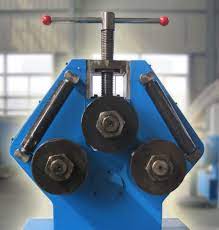Selecting the right profile tube bending machine is a critical decision for any fabrication shop looking to expand its capabilities or improve efficiency. This choice not only impacts the quality of the work produced but also the efficiency and cost-effectiveness of operations. Below, we detail key factors to consider when choosing the perfect machine for your needs.
Performance and Precision
Assessing Bending Capabilities
When evaluating a profile tube bending machine, consider the types of bends it can perform, such as rotary draw bending or roll bending, and its compatibility with the profiles you commonly work with. Machines vary in the precision of the bend they can achieve, so select one that meets your required tolerances.
Speed and Production Rate
The speed of the machine directly influences production rates. Look for a machine that offers a balance between high-speed bending and maintaining precision. Some advanced models can achieve bending speeds that significantly reduce cycle times, thereby increasing throughput.
Material Compatibility
Range of Materials and Sizes
Ensure the machine can handle the range of materials and profile sizes you work with. Whether you're bending steel, aluminum, or more exotic materials, the machine must be versatile enough to accommodate your needs without compromising on quality or efficiency.
Operational Costs
Energy Efficiency
Modern machines often feature energy-efficient designs that can lower operational costs. Pay attention to the power requirements and consider machines that offer features like variable speed drives, which adjust power use based on load, reducing overall energy consumption.
Maintenance and Durability
The cost of maintenance can impact the total cost of ownership. Choose a machine known for its durability and ease of maintenance. Consider the availability of spare parts and the manufacturer's support services to minimize downtime.
Technological Advancements
CNC Integration
A machine with CNC (Computer Numerical Control) capabilities offers higher precision and repeatability in bends. CNC machines allow for the programming of complex bending sequences, making them ideal for applications requiring high levels of accuracy and consistency.
Software and Automation
Automation features not only reduce the need for manual labor but also enhance production efficiency. Look for machines with intuitive software that allows for easy programming and adjustment of bending operations.
Conclusion
Investing in a profile tube bending machine requires careful consideration of several factors, including performance, material compatibility, operational costs, and technological advancements. By thoroughly assessing your needs and the capabilities of different machines, you can select a model that not only meets your current requirements but also accommodates future growth. Choosing the right machine is pivotal in enhancing fabrication quality, efficiency, and profitability.

